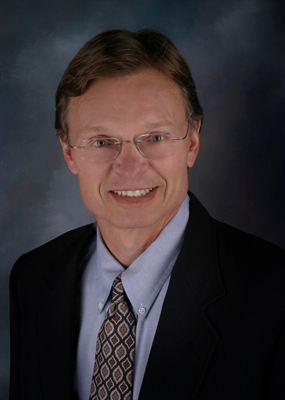UT Arlington professors organizing international scientific conference

As many as 500 scientists from all over the world will attend the 24th International Symposium on Chiral Discrimination, a conference being organized by two UT Arlington professors for June 10-13 in Fort Worth.
The event, known as Chirality 2012, is the foremost conference for all sciences associated with chirality, one aspect of which is vital to drug development and other processes. Chiral compounds – such as amino acids and sugars - are molecules referred to as enantiomers; compounds that differ only by being non-superimposable mirror images of each other.
Advancements in the science of chiral separations, discrimination and synthesis have led to advances in drug therapy and disease detection. Chiral discrimination is also used in testing for environmental contaminants and in geochemical dating. Sharing methods and results of recognizing, synthesizing, manipulating and understanding the characteristics of chiral molecules are at the heart of the conference.
Daniel W. Armstrong, a professor and internationally known chemist who holds the Robert A. Welch Chair in Chemistry at UT Arlington, has organized Chirality 2012 along with Kevin Schug, an associate professor of chemistry and biochemistry and the Shimadzu Distinguished Professor of Analytical Chemistry at UT Arlington.
“We are bringing some of the best organic chemists, analytical chemists, pharmaceutical scientists, physical scientists, theoretical scientists and many others together to talk about their latest research,” said Armstrong. “This is a very broad conference because chirality encompasses so many areas of science.”
Some of the highlights planned for the conference include:
- Plenary lectures by Ron Breslow, Columbia University professor and 1991 U.S. National Medal of Science Recipient, and E.J. Corey, Harvard University professor and 1990 Nobel Laureate in Chemistry. Breslow will discuss the “Origin of Chirality on Earth” on Monday, June 11. Corey will speak on Tuesday, June 12 on “Enantioselective Methods for the Synthesis of Polycycles.”
- Presentation of the 2012 Chirality Medal to Eric N. Jacobsen, Professor of Chemistry and Chemical Biology at Harvard University. Jacobsen’s research focuses on mechanistic and synthetic chemistry and the development of new methods for organic synthesis.
- A session on the “Practice and Consequences of Chiral Drug Development” that will feature an examination of the science behind chiral drug patent litigation.
- A pharmaceutical industry job bureau, books signings and a special session for presentations by young investigators will be featured.
A full schedule of scientific sessions and events is online at www.chirality2012.com.
“We see hosting Chirality 2012 as just one more way that UT Arlington's faculty are helping to shine a spotlight on North Texas and the important scientific work going on here," said Ronald L. Elsenbaumer, provost and vice president for academic affairs at UT Arlington.
Many of the conference presenters are from outside the U.S., but Armstrong said he and Schug also sought to include numerous Texas colleagues to represent the high quality research going on in the Southwest.
For example, a team led by Bryan W. Brooks, professor of environmental science and biomedical studies at Baylor University, will present research on “Environmental Fate, Effects and Risks of Chiral Contaminants” during a June 11 session on “Stereochemical Effects in the Environment and Drugs.”
“Hosting Chirality 2012 in North Texas will allow students and local scientists the opportunity to hear about cutting-edge research in-person, straight from the people doing it,” Schug said.
Many generous vendors are supporting the conference. Among the largest contributors are Chiral Technologies, Sigma-Aldrich, Shimadzu Scientific Instruments and BioTools, Inc.
Earlier this spring, Shimadzu Scientific Instruments gave UT Arlington nearly $3 million in analytical equipment to start the Shimadzu Center for Advanced Analytical Chemistry. Instruments in the lab are already being used for research into preventions and treatments for illnesses as cancer and malaria as well as in the development of nano materials for industry.
The University of Texas at Arlington is a comprehensive research institution of nearly 33,500 students in the heart of North Texas. Visit www.uta.edu to learn more.
###
Media contact: Traci Peterson, tpeterso@uta.edu, 817-272-9208
The University of Texas at Arlington, www.uta.edu
Tags:


